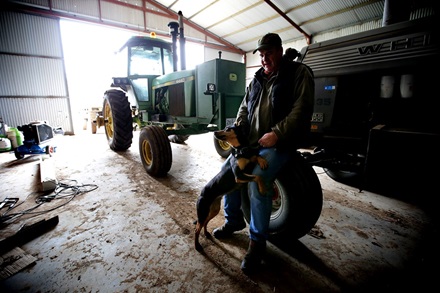Article courtesy of the Australian.

One of the nation’s biggest employers has urged national cabinet to prioritise reform of the antiquated tax system, saying it has been one of the key reasons for Australia’s slow jobs growth and falling investment.
Wesfarmers chief executive Rob Scott said it should “sound alarm bells” that, for the first time since the 1970s, more funds were being invested offshore than overseas investors were pumping into Australia.
“Unfortunately, for far too many Australians, a job is out of reach or at risk,” said Mr Scott, chairman of the Business Council of Australia’s tax and federation working group.
“We cannot pin all of Australia’s slow jobs growth and falling investment on our tax system, but it is much to blame. We need a cutting edge, competitive tax system that is better suited to 2020, not 1999 when it was last reformed — almost a decade before the first iPhone was released.”
The Wesfarmers chief’s commentary in an opinion piece for The Australian follows last week’s assessment from Andrew Bassat, chief executive of online recruitment agency Seek, that the nation had no hope of making up lost jobs from COVID-19 without radical change.
This included businesses taking greater risks and governments providing direct investment incentives, not just tax cuts.
Mr Scott, who oversees retail chains including Bunnings, Kmart and Target, which employ 107,000 workers, proposed both immediate and longer-term solutions.
He said the federal government could act now to bring forward investment and create jobs by introducing a 20 per cent investment allowance, after a similar policy achieved success in the 2008 financial crisis for purchases of plant and equipment.
Over the long term, the GST could be changed so other taxes that discouraged job creation could be lowered or removed.
“When I (speak to staff) I am constantly reminded a job is far more than just a pay cheque,” Mr Scott said. “A job provides many of us with a stronger sense of purpose and connection to our community, and gives us the financial independence to aspire to live a life we choose. Jobs matter immensely to our wellbeing.
“We should commit our support to this critical reform process and the national cabinet, and rise to this challenge, each asking ourselves, ‘If not now, then when? If not me, then who?’.”
Josh Frydenberg said the Morrison government was continually looking at ways to lower taxes, drive investment and create more jobs, and had provided $314bn in economic support for workers, households and businesses during the COVID-19 crisis.
The government, he said, knew that investment was an important driver in creating more jobs. “That is why we have encouraged business investment during this challenging period by increasing the instant asset write-off threshold from $30,000 to $150,000 and expanding access to include businesses with aggregated annual turnover of less than $500m,” the Treasurer said.
Australian Industry Group chief executive Innes Willox backed the call for tax reform, saying the stage-four lockdown in Victoria had driven the economy “even further backwards” and reinforced the need for significant policy change to speed up the national recovery.
As well as changes to workplace relations, skills and training, and energy policy, Mr Willox said the pandemic was an opportunity to simplify legislation and regulation that was impeding the ability of businesses to retain and increase jobs.
He said all of Australia would be impacted by Melbourne’s lockdown and “there simply cannot be another lockdown without creating a total economic catastrophe”.
“High unemployment, minimal wages growth, curtailed investment, higher insolvency rates and lower exports as businesses that are kept at home look to form the basis of economic activity for the next few years,” he said.
“That is why measures at the federal and state level to boost demand, confidence and investment are key. We are not going to tax or regulate ourselves to prosperity.”
The last big-bang reform of the tax system occurred more than 20 years ago, when the Howard government introduced the GST. While the GST now raises about $70bn a year, or about 13 per cent of the total tax take, changing consumption habits and the exemption of fresh food, health and education means it has been in decline since it was introduced.
Mr Scott said the tax system was also working against investment and job creation, with investment weakening and productivity growth slowing even before COVID-19.
Treasury was now forecasting that non-mining business investment would slump by almost 20 per cent this year.
Mr Scott said an investment allowance this time around should apply to all new assets, making it less likely to “distort” investment decisions and less complex to administer.
“Crucially, this would incentivise investment in data and digital assets like intellectual property and computer software, helping Australian businesses be more competitive globally and aligned with the future of our economy, not the past,” he said.
The scale of the reforms and the federated structure of the tax system meant reforms designed to help Australia prosper over the next 20 years could not be achieved by the federal government alone. National cabinet was the best vehicle to undertake the task.
“We must have the courage to put all tax reforms on the table, including changes to the GST, if that means other taxes that hinder employment can be reduced or removed entirely and households are appropriately compensated,” Mr Scott said.
